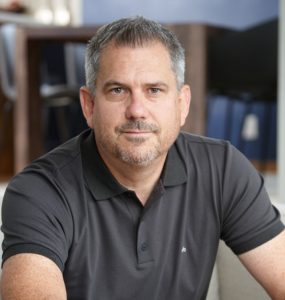I have some very important news to share. I recently purchased a property in the Town Center district of Macungie (just south of Allentown), and I am almost finished renovating this two-story Colonial home (originally built in 1936). I am planning to move Keystone Financial Planning to its “new home” on April 24th, assuming that everything goes as planned. I cannot describe how excited I am to be moving the firm closer to my home (about 4 minutes away) and to my girls’ schools (within walking distance)! I am expecting that my new phone lines, telephone system, and high-speed internet service will be working within a few days of the move-in date. In any case, I will leave my current phone number hooked up until April 28th. My new address and phone number, effective April 24th, will be: 330 East Main Street; Macungie, PA 18062; 610-965-4537.
Every day the headlines proclaim new evidence of economic globalization. Television sets are no longer made in the United States, U.S. manufacturers rush to move production to China, programmers in India build and maintain our software. The global economic explosion has profound implications for U.S. investors: to survive, they can no longer stick to domestic stocks and bonds.
Although the U.S. stock market remains the world’s biggest, its standing has declined. “The U.S. has slipped below 50% of the global equity market capitalization,” says David M. Blitzer, managing director of Standard & Poor’s. The U.S. market has gotten smaller partly because Japan and some European markets have grown in recent years, he said. Japan once again is the world’s second largest stock market, with a 10% share. Meanwhile, smaller European nations like Austria, Spain, Norway, and Iceland have grown, while the United Kingdom remains third largest at just under 10%.
Investors can no longer shop for stocks at home and ignore the rest of the world. Had they done that last year, for instance, they would have been sorry: U.S. stocks turned in a lackluster performance compared to double digit returns in other countries. Indeed, avoidance of foreign investments means a U.S. investor gives up on 95% of the world’s population and 80% of its gross domestic product. Some big companies in developing countries are becoming dominant players in their industries: Korea’s Samsung and India’s InfoSys are two examples. The growth of a middle class in Russia, China, India, and Brazil is fueling domestic demand and world trade.
And it is not just a growth story for U.S. investors: foreign stocks also offer diversification benefits because their economies and stock markets don’t always move in sync with U.S. stocks. The transaction and custody costs involved in foreign stock investing makes pooled investments, such as mutual funds, the vehicle of choice. Indexed and asset class international funds are probably the best type of fund to use: they cover a range of countries and eliminate the risk of concentration in individual securities.
The real benefits of international investing come to investors who venture into smaller and more exotic markets than the big industrialized countries. Smaller international stocks and developing market stocks seem to provide the most dramatic diversification benefits. It just so happens that these are the countries with big long-range growth potential as well. Asset class funds that invest in a representative array of stocks in each of these markets can reduce risks inherent to them. The same reasons that domestic investors profit from using indexed and asset class funds apply to foreign investing.
In the United States it has long been shown that the average active investment manager has trouble beating the indexes. Recent statistics show that international stock investment managers are having an increasingly difficult time beating their relevant indexes. The Journal of Indexes recently reported that 61% of managers failed to beat the international EAFE index in 2003, while 58% failed to beat it the following year.
Now, in order to comply with the provisions of the Gramm-Leach-Bliley Act, I am enclosing a copy of KFP’s Privacy Statement for your review. The Privacy Act requires that I deliver this to every client on an annual basis. In addition, as a Registered Investment Advisor, Keystone Financial Planning is required by state regulators to offer you a copy of Part II of Form ADV. The Form ADV is KFP’s registration with the Pennsylvania Securities Commission. If you would like a copy of Form ADV Part II, you may download it by going to the “Regulatory Compliance” page on KFP’s website (www.KeystoneFP.com). Please feel free to call me if you would like a copy mailed to you.
Thank you for your trust and confidence. Please feel free to call or send an email if you need anything.
Sincerely,
About Christopher Jones
Christopher Jones is the Founder and President of Sparrow Wealth Management, a fee-only financial planning and investment management firm. Before entering the investment field, Chris was a management consultant for Deloitte Monitor. He graduated summa cum laude from Brigham Young University with a B.S. in Economics and a minor in Business Management.



